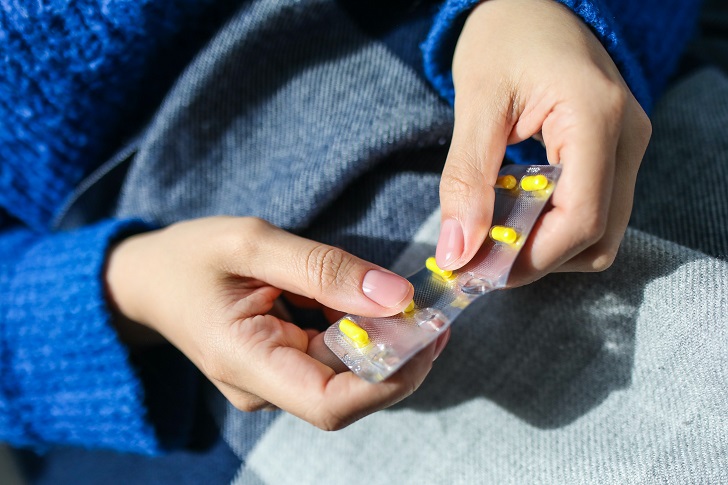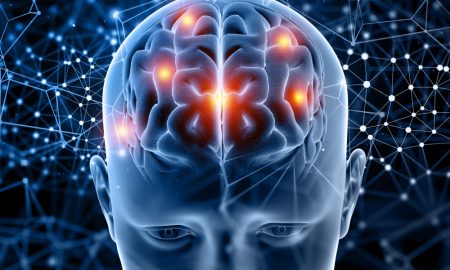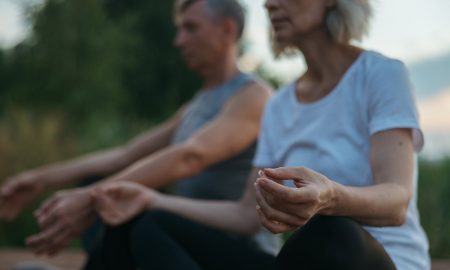
Therapy? Medication? What Are the Treatments for PTSD

Post-Traumatic Stress Disorder (PTSD) is a common after-effect of traumatic events. It can be a debilitating condition, but the good news is that those suffering from this condition can regain control of their lives, thanks to effective treatments out there.
Today, we will explore the various treatments for PTSD, ranging from therapy and medication to alternative approaches and self-help strategies.
Psychotherapy
Also referred to as talk therapy, this is one of the most common and effective treatments for PTSD. There are several types of psychotherapy used in the treatment of PTSD. Cognitive-Behavioural Therapy (CBT) is a well-established therapy to encourage people to change negative behaviors and thought patterns.

Cottonbro Studio/ Pexels | Therapy focuses on exploring the unconscious aspects of trauma
In the context of PTSD, CBT can help patients identify and challenge distorted beliefs related to their trauma. Exposure therapy, a subtype of CBT, involves gradual exposure to traumatic memories or situations, allowing individuals to process their emotions and reduce fear.
Eye Movement Desensitization and Reprocessing (EMDR) is yet another effective treatment. During EMDR sessions, patients focus on a specific traumatic memory while engaging in rapid, rhythmic eye movements or other forms of bilateral stimulation. This process can help desensitize the traumatic memory and reduce distress.
Additionally, group therapy sessions can benefit individuals with PTSD, providing a supportive and empathetic environment where participants can share their experiences and coping strategies, ultimately reducing isolation and promoting a sense of community.

Polina Tankilevitch/ Pexels | Medication is prescribed to manage nightmares and sleep disturbances associated with PTSD
Medications
Medications can be prescribed in conjunction with psychotherapy to help manage specific symptoms of PTSD, such as anxiety, depression, and insomnia.
Serotonin-norepinephrine reuptake Inhibitors (SNRIs), such as venlafaxine (Effexor), work on both serotonin and norepinephrine neurotransmitters and can also be effective in treating symptoms of PTSD. Benzodiazepines may be prescribed on a short-term basis to alleviate severe anxiety symptoms, but they are generally not recommended for long-term use due to the risk of dependence.
It’s important to note that medication alone is not considered a first-line treatment for PTSD, and its use should be carefully monitored and coordinated with psychotherapy under the guidance of a mental health professional.
Alternative Therapies
In addition to traditional treatments, some individuals with PTSD find relief through alternative therapies. While these approaches may not have as much scientific evidence supporting their effectiveness, they can be valuable adjuncts to traditional treatments. Yoga practices emphasizing mindfulness, relaxation, and controlled breathing can help reduce anxiety and promote well-being.

Cottonbro Studio/ Pexels | These practices can help individuals with PTSD manage their symptoms by promoting relaxation and mind-body awareness
Acupuncture is believed to balance the body’s energy flow. Some individuals find it helpful in reducing anxiety and improving sleep.
To help alleviate stress and mental fatigue, meditation and mindfulness techniques, such as meditation and deep breathing exercises, can work wonders. Creative expression through art and music can provide a therapeutic outlet for processing emotions and trauma.
Self-Help Strategies
In addition to professional treatments, individuals with PTSD can use self-help strategies to complement their recovery. Regular physical activity is a very effective self-recovery tool. It has been proven to reduce symptoms of PTSD due to the release of endorphins and promotes overall well-being.
Maintaining a balanced diet, getting adequate sleep, and minimizing alcohol and substance use can improve mental health. Additionally, fostering strong social connections and positive interactions/support from friends and family can be instrumental in the recovery process.
More in Mind & Mental
-
`
Why Deleting Social Media Forever CAN Be a Sign of Depression!
Today, social media has become a huge part of our lives. We scroll through endless feeds, share moments, and stay connected...
September 19, 2024 -
`
Some First Date Night Ideas That Are Surprisingly Cheap
Looking for cheap date night ideas that won’t break the bank but still impress your date? Whether it is your first...
September 14, 2024 -
`
Where to Vacation in December for a Memorable Holiday?
As December rolls in, travelers are faced with a myriad of choices for a perfect holiday escape. If you’re wondering where...
September 4, 2024 -
`
What Is a Personal Mantra and Tips to Develop Yours in Minutes
Are you feeling stuck or overwhelmed? It’s easy to lose focus when life gets challenging. But what if a simple phrase...
August 30, 2024 -
`
How to Control Anger – Practical Tips and Techniques
Anger is a complex emotion that everyone experiences from time to time. It can arise from a variety of triggers and,...
August 23, 2024 -
`
How to Tell if a Bipolar Man Loves You – Key Signs and Indicators
Relationships, especially those involving someone with bipolar disorder, can be challenging but rewarding. The highs and lows characteristic of bipolar...
August 15, 2024 -
`
How to Prepare for All You Can Eat Sushi Buffets – Tips & Tricks
Are you ready to enjoy a sushi buffet and make the most out of your dining experience? If you’re a sushi...
August 9, 2024 -
`
How Does the Brain Play Into Mindset? The Power of the Mindset
How does the brain play into mindset? Within the brain lies the foundation of our mindset, shaping our perceptions and guiding...
August 3, 2024 -
`
How Often Should You Meditate to Achieve Your Goals
How often should you meditate to achieve its benefits? This question is often asked by those looking to incorporate this practice...
July 25, 2024















You must be logged in to post a comment Login